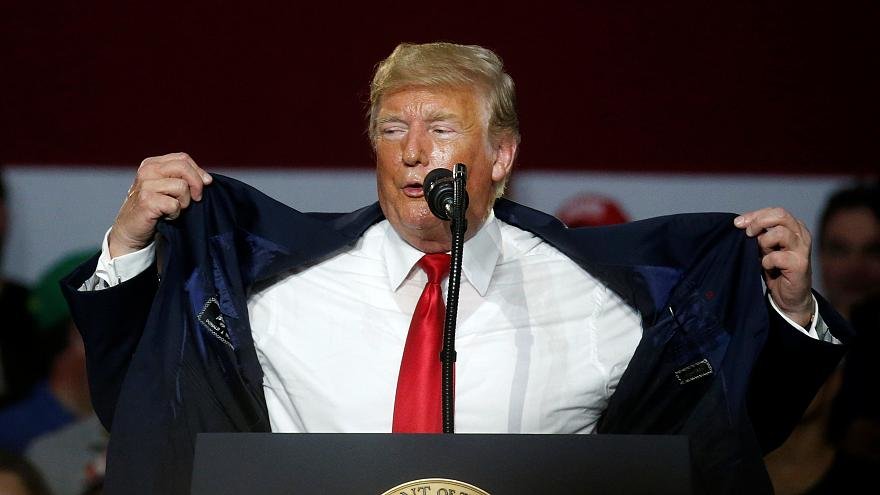'Trump will not be president forever'

TEHRAN - Europeans are annoyed by Trump's hostility to traditional U.S. allies and his attacks on NATO, however, Trump will not be president forever.
A reporter at Tehran Times newspaper recently interviewed Geoffrey Carliner, Professor of the University of Boston to further discuss the issue.
Following is the complete text of the interview with Professor Geoffrey Carliner:
Q: How do you evaluate “speeches of Macron, President of French about that Europe should no longer rely on America In terms of security“?
A: Europeans, including Macron and Merkel, are understandably upset by Trump’s hostility to traditional U.S. allies and his attacks on NATO. However, Trump will not be president forever, maybe not even in 2021. Even now, his Defense Secretary Mattis has said that the U.S. “is 100 percent committed to NATO.” Secretary of State Pompeo has said “NATO is more indispensable than ever.” Many Republican and Democratic politicians have also emphasized that the U.S. continues to support NATO. Although Trump is the U.S. president, his comments should not be taken as a fundamental change in U.S. policy. The U.S. would certainly respond with military force if Russia, or another country, attacked a NATO member.
Q: With the arrival of the Trump to the White House and his criticism of the European countries regarding NATO's share, Europe had begun its efforts to form a joint European army. According to Macron’s speeches, it seam formation of a joint European army take more seriousness. What is your opinion?
A: Some Europeans have argued for a European army for many years. But there are serious obstacles. The UK and France have the strongest militaries, and now the UK will almost certainly leave the EU. Germany is unlikely to put its military under joint control with France. pposition to further political and economic integration, much less military integration, of the EU is quite strong in Italy, Poland, Hungary, and some other countries. Persuading all these countries to join a European military does not seem likely.
Q: Is Europe essentially capable of being independent of America in terms of security? If so, what will be the future of NATO?
A: In 2017 the U.S. spent $610 billion on its military, while France, the UK, Germany, and Italy combined spent $178 billion. The U.S. has built many more fighter planes, aircraft carriers, tanks, and submarines over many years than European countries have built. European military spending would have to increase dramatically for many years before it had a military that was anywhere close to the strength of the U.S. military.
Q: Some analysts have interpreted Macron's speeches as a new Western order. Will the West enter a new era of order and independence from the United States?
A: In the short run, Europe would probably not be able to defeat a Russian attack on the Baltic countries without U.S. help. Without the U.S., it could not keep its oil supplies flowing from the Persian Gulf if Iran tried to shut the Strait of Hormuz. It would have had difficulty contributing to Qaddafi’s overthrow in Libya without the U.S. Europe will be dependent on U.S. help to defend itself for many years. Even in the long term, European countries are not likely to be willing to pay the price for an independent military.
Q: Macron also said that Russia should also be involved in European security issues. How do you assess this position?
A: Russia should of course be involved in European security issues. Europe, Russia, and the U.S. should work together to reduce tensions and try to resolve conflicts. Perhaps there can even be negotiations on some issues between Europe and Russia that do not involve the U.S. That does not mean that Russia will replace the U.S. as Europe’s close ally. This is true even though there will continue to be disagreements between the U.S. and European countries about issues like the Iran nuclear deal, the invasion of Iraq in 2003, trade, and levels of military spending.
